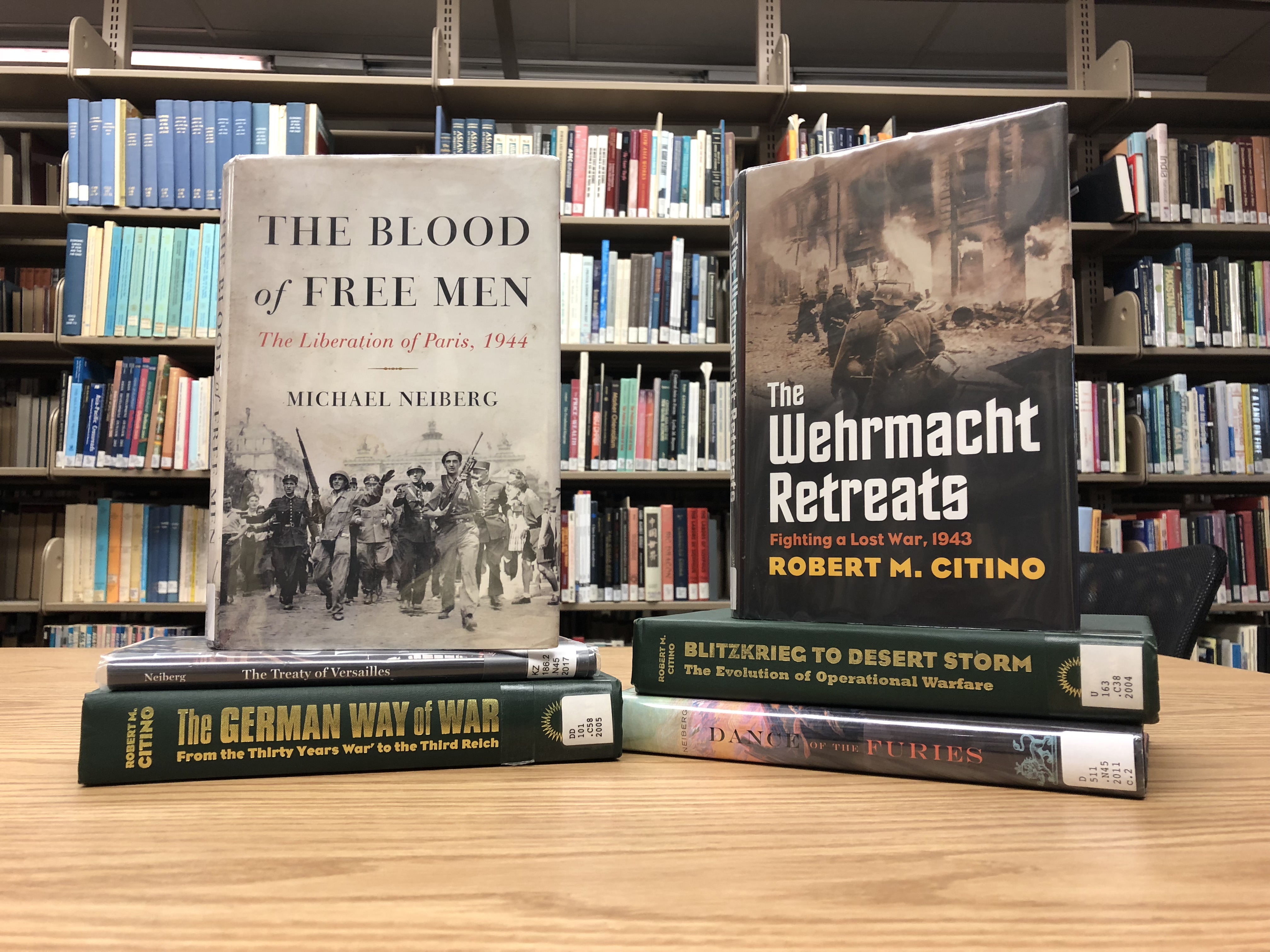
Write in a way that is interesting to you. Write in a way that you think would be interesting to your readers
When military historians study battles or campaigns, what purpose does it serve? To immerse oneself deeply in the period and master the details, or to connect events of the past to the present? These and other questions are addressed in this conversation between two renowned military historians–Robert Citino of the World War II Museum and Michael Neiberg of the U.S. Army War College. They also address questions of what constitutes good historical writing and why it is especially important to develop such writing skills today.
Podcast: Download
Subscribe: Apple Podcasts | Spotify | Amazon Music | Android | Pandora | iHeartRadio | Blubrry | Podchaser | Podcast Index | TuneIn | Deezer | Youtube Music | RSS | Subscribe to A Better Peace: The War Room Podcast
Rob Citino is a senior historian at the National World War II Museum. Michael Neiberg is the Chair of War Studies at the U.S. Army War College. The views expressed in this presentation are those of the speakers and do not necessarily reflect those of the U.S. Army War College, U.S. Army, or Department of Defense.
Photo Credit: Tom Galvin, using copies available in the U.S. Army War College Library
Other releases in the “On Writing” series:
- BEYOND VIETNAM: SUNK COSTS IN PRESIDENTIAL STRATEGY
- EXPLOITING THE VOID: THE PSYCHOLOGY OF MODERN PROPAGANDA
(ON WRITING) - COLONELS WRITING FOR COLONELS (RE-RELEASE)
- ON WRITING: MILITARY AUTHORS AND THE HARDING PROJECT (RE-RELEASE)
- FIGHTING TOGETHER: THE CANADIAN-AMERICAN PARTNERSHIP IN WORLD WAR II
(ON WRITING) - THE SCHOLAR AND THE STRATEGIST:
SIR HEW STRACHAN
(ON WRITING) - COLONELS WRITING FOR COLONELS
- ON WRITING: MILITARY AUTHORS AND THE HARDING PROJECT
- UNDERSTANDING RUSSIAN CULTURE: JADE McGLYNN
(ON WRITING) - CHINA’S SHIFTING HISTORY: STEPHEN PLATT
(ON WRITING)





Excellent podcast, gentlemen. I have great respect for Dr. Citino — loved his work on the Wehrmacht. I also thoroughly enjoyed this discussion and take on popular history. As a fellow military historian/author, I truly see the importance of both genres (academic/scholarly history vs. popular history) and any aspect in-between. In regards to academic history, I recognize the role of challenging the status quo or arguing an aspect that could change the historiography or the traditional historical narrative for the “ivory tower” community. But, from a personal point of view, I would rather focus my own writing and research on educating the general public over stirring debate in the halls of academia. To reach and influence a larger audience has a more profound and lasting impact than writing for a narrow body of those already in the know. (Of course, sometimes this can be accomplished through both genres) Have either of you ever read David Detzer’s work on the American Civil War (“Donnybrook,” etc.)? He is also a model of how to write a fascinating narrative history (dare I say creative?) without straying into the land of fiction. Just my 10 cents worth.